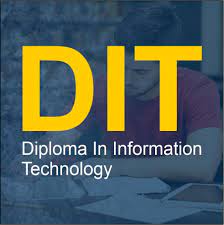
DIT course in Rawalpindi
In the rapidly evolving landscape of technology, staying ahead of the curve is imperative for both personal and professional growth. One avenue that promises to equip individuals with the necessary skills and knowledge is the Dynamic Information Technology (DIT) course.
Introduction to the DIT Course
The DIT course is a cutting-edge program designed to provide participants with a deep understanding of information technology and its dynamic applications across various industries. Developed to meet the demands of an ever-changing digital world, this course serves as a gateway to mastering key concepts, tools, and technologies in the IT domain.
Course Benefits
- Versatile Skill Set: The DIT course equips learners with a versatile skill set, covering a broad spectrum of IT disciplines such as programming, network administration, cybersecurity, and data management.
- Industry-Relevant Knowledge: Participants gain insights into the latest industry trends, ensuring they are well-prepared to tackle real-world challenges and contribute meaningfully to their organizations.
- Hands-On Experience: The course emphasizes practical, hands-on learning, allowing students to apply theoretical knowledge in simulated environments and real-world scenarios.
- Global Recognition: Completion of the DIT course is a badge of excellence that is globally recognized, opening doors to diverse career opportunities around the world.
Learning Outcomes
Upon completing the DIT course, participants can expect to:
- Master Programming Languages: Acquire proficiency in programming languages such as Python, Java, and C++.
- Network Administration Skills: Gain expertise in configuring and managing computer networks, ensuring optimal performance and security.
- Cybersecurity Competence: Develop a robust understanding of cybersecurity principles and practices to safeguard digital assets.
- Data Management Proficiency: Learn to efficiently handle and analyze data, utilizing tools and techniques for effective decision-making.
Study Units
The DIT course is structured around comprehensive study units, including:
- Programming Fundamentals
- Network Design and Administration
- Cybersecurity Principles
- Database Management
- IT Project Management
- Cloud Computing
- Emerging Technologies
Who is this Course For?
The DIT course is ideal for:
- Aspiring IT Professionals: Individuals seeking to kickstart a career in information technology.
- IT Enthusiasts: Those passionate about staying updated with the latest advancements in the tech world.
- Career Changers: Professionals looking to transition into the dynamic field of IT.
Future Progression
Completing the DIT course opens doors to a myriad of future progression opportunities, including:
- Advanced Specializations: Further study in specialized areas such as artificial intelligence, machine learning, or blockchain technology.
- Advanced Degrees: Pursue higher education with master’s or doctoral programs in computer science, IT management, or related fields.
- Certifications: Obtain industry-recognized certifications in cybersecurity, networking, or programming languages to enhance professional credentials.
In conclusion, the DIT course is a transformative journey that not only equips individuals with essential IT skills but also propels them into a world of endless possibilities. Whether you are a budding IT professional or a seasoned veteran looking to update your skill set, the DIT course is your gateway to a future of innovation and success in the ever-evolving world of technology.